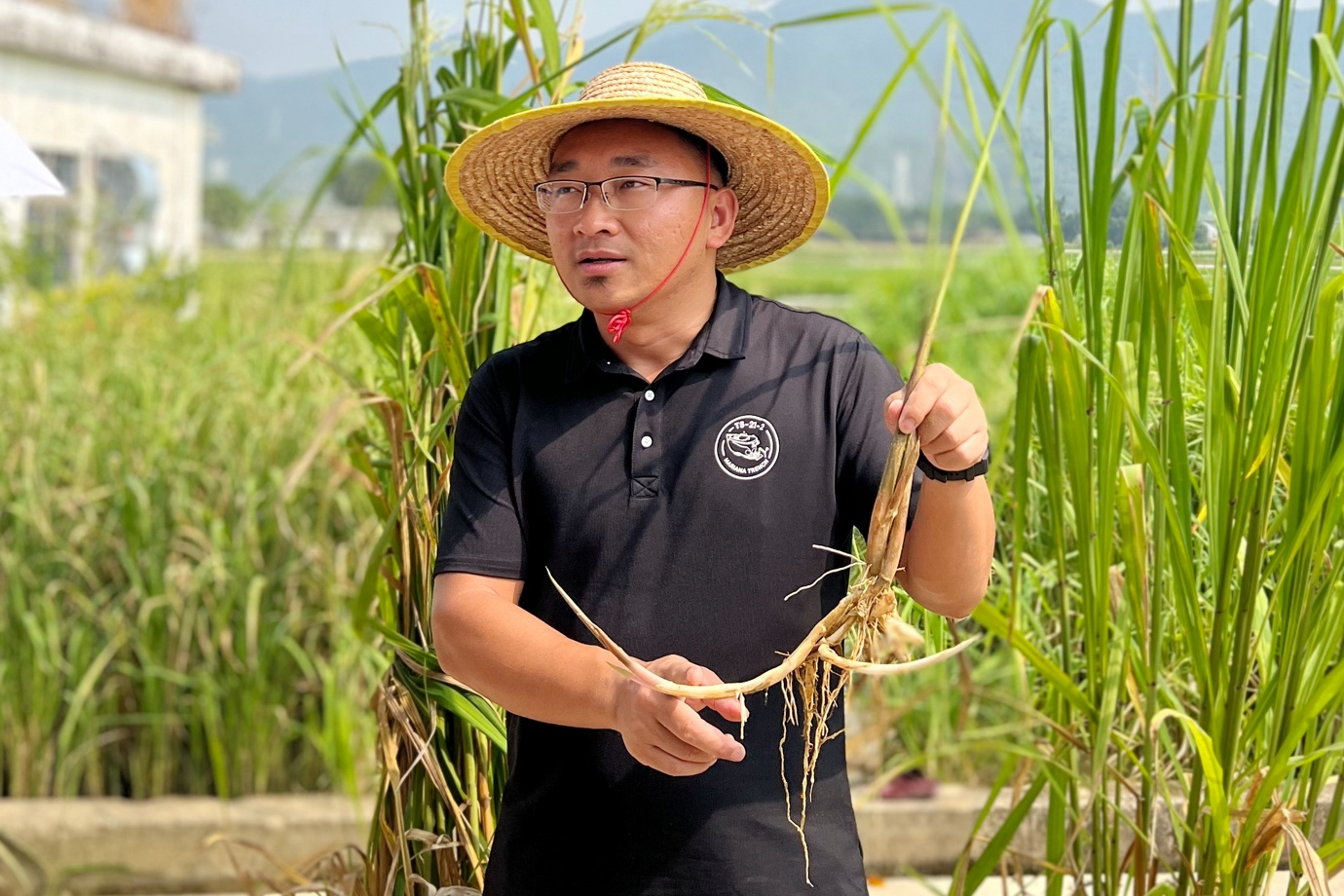For Liu Huan, Chief Scientist at BGI-Research, agriculture is more than just a science – it’s a pivotal tool that has the potential to revolutionize crop production and yields, thereby helping to ease a deepening global food crisis caused by climate shocks and geopolitical conflicts.
 Dr. Liu Huan introduces different rice strains in the field.
Dr. Liu Huan introduces different rice strains in the field.
World hunger is on the rise, affecting nearly 10% percent of people globally. From 2019 to 2022, the number of undernourished people grew by as many as 150 million, a crisis driven largely by conflict, climate change, and the COVID-19 pandemic1.
Benefiting Lives Through Groundbreaking Crop Breeding Techniques
In his work, Liu, the Deputy Director of the State Key Laboratory of Agricultural Genomics at BGI-Research, attempts to resolve the issue of global food insecurity by using genomics technologies to achieve breakthroughs in crop breeding techniques.
“We’ve discovered that our genetic research work and production practice can be directly combined with variety breeding, and the integration of production, education and research can be realized. We have moved from basic research in the laboratory to crop breeding applications in the field,” he said.
“We hope that new crop varieties can be planted in the fields by different communities, bringing real production and nutritional benefits to all.”
Saving Production Costs and Time With Perennial Rice
Liu’s current project revolves around perennial rice. “We’re focused on genetic technology to empower the cultivation of varieties. We hope to cultivate more high-quality crops, and change traditional agricultural patterns,” he added.
Rice, a staple food for more than half of the world's population, is grown in over 100 countries with 90% of the total global production from Asia. There are more than 110,000 cultivated varieties of rice that vary in quality and nutritional content2.
Traditional rice is grown once a year, and some varieties can be grown for two seasons, which requires harvesting and sowing. Although there are innovative regenerative rice varieties in the farming world, it cannot solve the problem of yield, nor can it achieve overwintering.
BGI’s use of genomics research in perennial rice involves crossing different strains of rice to create a breed that can self-germinate and be harvested continuously for three to five years, with a yield of over 14 tonnes per hectare. The crop only requires two steps of field management and harvesting once planted, compared to the traditional six steps in rice production, thereby saving time, labour and production costs. It is currently the only perennial food crop that has gone into commercial production.
Changing the World, One Seed At A Time
“It is said that ‘a seed can change the world’,” Liu noted. “A seed is controlled by genes. If we can find the high-quality genes that control the seed, it may be able to revolutionize the industry.”
For its perennial rice project, BGI is cooperating with Yunnan University, and has carried out trial plantings in more than a dozen provinces across the country, hoping to promote the further cultivation of perennial rice, boosting food security.
“These are practical problems we want to solve, which are very meaningful to every scientist,” he added.
Reference:
1. https://www.actionagainsthunger.org/world-hunger-facts-statistics
2. https://pubmed.ncbi.nlm.nih.gov/31619630/



